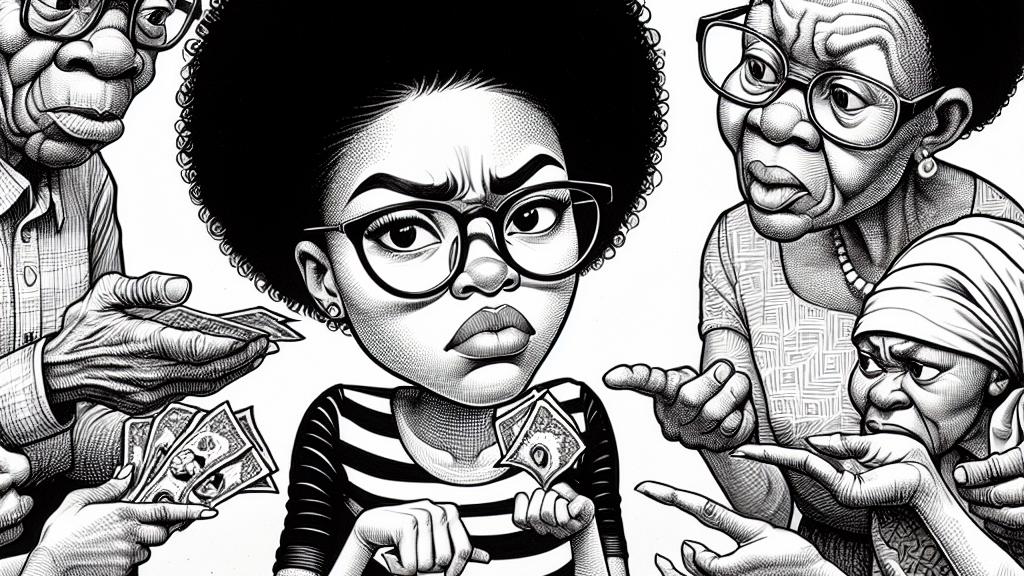Elsa Majimbo Sparks Controversy: Is 'Black Tax' a Burden or Blessing?
Overview
- Kenyan influencer Elsa Majimbo's viral video challenges the cultural practice of 'black tax'.
- The discussion reveals a divide between personal freedom and communal responsibilities.
- Experts argue that 'black tax' roots trace back to colonial exploitation and economic disparities in Africa.

Elsa Majimbo's Bold Critique
In a recent TikTok that quickly went viral, Elsa Majimbo, a 23-year-old Kenyan comedian, boldly criticized the practice of what many refer to as 'black tax'. This phrase describes the financial obligations successful black individuals often face when financially supporting their extended families. Majimbo's remarks struck a chord with her 1.8 million followers, as she expressed her frustration over constant family requests for money. Her video highlighted a significant generational conflict, where many young Africans feel trapped between the expectations to support their families while striving to achieve personal financial independence. This critique not only resonated with those experiencing similar pressures but also ignited a spirited debate about cultural expectations in collaborative societies.
Cultural Perspectives and Individual Strain
Rooted in the African principle of ubuntu, the concept of 'black tax' emphasizes the interdependence and communal responsibilities shared among family members. According to this philosophy, community welfare often supersedes personal financial ambitions. For many, contributing to family welfare is seen as both an honor and a duty; however, it can also manifest as an overwhelming burden. As illustrated by Sandra Ajalo, a hairstylist from Uganda, while the support extended by relatives during childhood is appreciated, the pressures to return that support as adults can lead to significant emotional and financial strain. The stories shared by young professionals reflect a complex tapestry of pride in heritage intertwined with frustration for personal sacrifices made to uphold family ideals.
Historical Context and the Economic Impact
The ongoing conversation about 'black tax' is significantly informed by the historical context of colonialism that has created entrenched inequalities in African societies. Dr. Chipo Dendere, an academic expert on Africana studies, explains that systemic oppression has hindered the accumulation of wealth in black families, leading successful individuals to bear financial responsibilities often shared by the state in richer nations. With many African countries lacking robust social safety nets, the expectation falls upon those who have succeeded to step in and support their families. The staggering $95 billion sent back home by African migrants in 2023 underscores this reality, revealing how integral these funds are for family survival in many countries. However, this raises critical questions: Is 'black tax' a meaningful expression of solidarity, or does it entrench a cycle of dependency that stifles individual aspirations and broader economic development?

Loading...